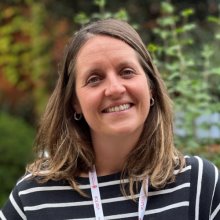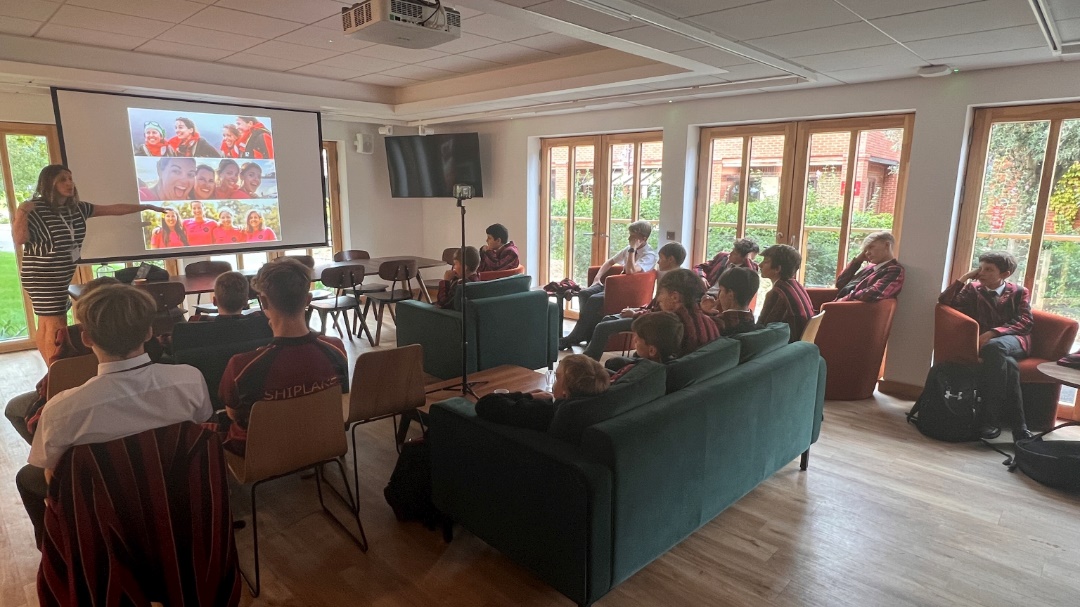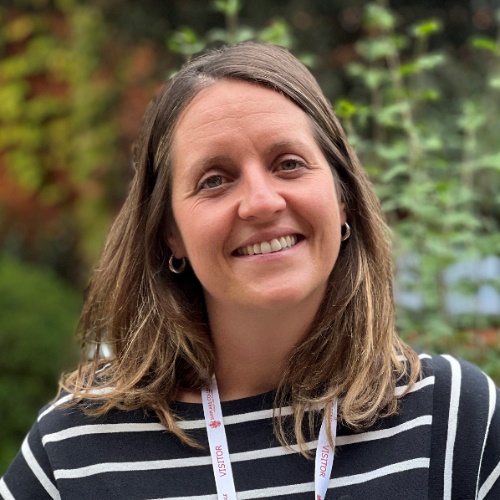
For the first Masterclass Monday of the academic year the scholars heard from Meg Dyos, part of the first all-female team and first team in a four-person boat to row across the Pacific Ocean.
Meg gave a captivating talk about the gruelling 8,446-mile journey from San Francisco to Cairns, of which she was part of the third and final 76-day leg rowing from Samoa to Australia. There were six members of the team, three who completed all three legs during the 257-day challenge, and three who completed a leg of the journey each. They referred to themselves as the "Coxless Crew", partly in reference to the absence of a coxswain in their crew.
Meg spoke about the specially designed boat - bright pink and affectionately called Doris - which provided electricity via solar panels and stored the dehydration food pouches, the reverse osmosis equipment to get drinking water and navigation equipment, and included two tiny cabins (think a bath with a lid) in which they would take turns to sleep. The routine saw each team member row for 12 hours a day, broken up in two-hour rowing shifts, then having two hours to eat and sleep, 24 hours a day.
The crew set off under the Golden Gate Bridge in San Francisco in April 2015. The original plan was about 50 days for each leg but disaster struck and both batteries on board broke which caused them to turn back and get new ones. The second leg also saw delays and by the time the third leg started they were over two months behind schedule. They took on the endurance challenge to raise funds for Walking With the Wounded and Breast Cancer Care, raising over £70,000 for the charities. They were sponsored by GlaxoSmithKline and how their bodies coped with the demands of the row were studied.
The team endured seasickness and physical and mental exhaustion, painful 'claw hand', and had to face the dangers of storms and high waves threatening capsizing, sharks following the boat for weeks and sores caused by the constant presences of seawater on the skin. Highlights, however, included the incredible sunsets and sunrises, seeing dolphins and turtles and the rare radio interaction with a passing container ship or fishing boat.
Meg spoke about how important it was to be able to 'Choose Your Attitude' and that this helped when setting out for a shift in the dark and rain (for example, one time they choose to grunt on every stroke just to make it funnier and help get through the two hours). The challenge inspired many others to get in touch who were following their daily blog and talk about their own 'Pacific' challenge they were crossing, such as training for a marathon or battling an illness.
The record-breaking challenge was documented with Go-Pro and drone footage taken by the rowers themselves, as well as professional footage when on or near the shore, and was made into a documentary film called Losing Sight of Shore. This is currently available to rent or buy on Amazon Prime.
Meg spoke about how she hadn't known the girls before she took part in the challenge and had just responded to a call on social media for participants. They have now, of course, all been bonded through this amazing experience. Incredibly, Meg had never rowed before starting the challenge (she didn't want to find out that she didn't enjoy it and want to back out) - but it's safe to say that she won't be doing any more rowing either.
The scholars listened intently and had lots of questions to ask Meg at the end of the talk! Congratulations on the amazing achievement Meg and thank you for sharing your story with us at Shiplake. Masterclass Mondays will take place every two weeks and we look forward to the next speaker and this year's programme of talks.






















